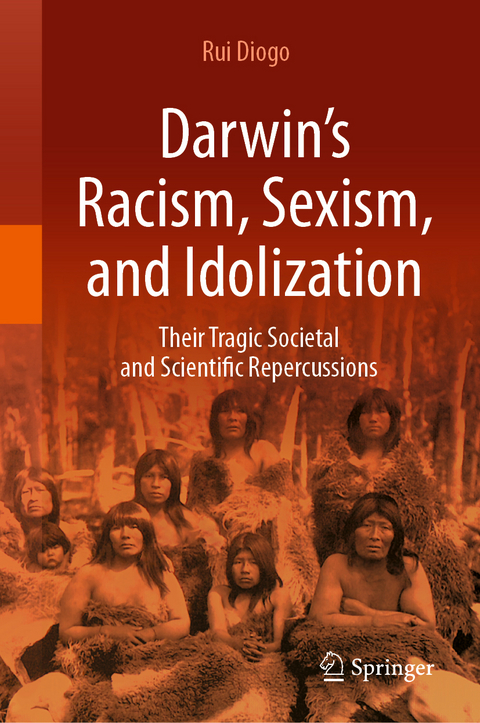In this book Diogo, a renowned biologist and anthropologist, addresses a question that is critical for the understanding of science, beliefs, idolization, systemic racism and sexism, and our societies in general: why has Darwin been idolized in such a unique way, particularly by Western scholars? Diogo shows that many evolutionary 'facts' stated in Darwin's works, particularly about human evolution, are inaccurate constructions based on Victorian biases and stereotypes: non-Europeans are inferior, women have a lower intelligence than men, Victorian society was the pinnacle of evolution, and so on. Importantly, such inaccurate biased statements about our evolution are markedly in contrast with the mostly accurate, and often brilliant, ideas put forward by Darwin concerning non-human organisms. Importantly, it was precisely the combination of such brilliant ideas, the use of simplistic and sometimes exaggerated metaphors that were catchy and easily absorbed by the general public, and Darwin's intellectual conservatism and biased ideas about women and non-European peoples that led to Darwin's idolization, particularly by Western scientists, as well as to the darkest societal repercussions of his works. By portraying such biased ideas as "evolutionary facts", Darwin provided easy ammunition for populist political leaders, authoritarians, colonialists, and white supremacists to 'scientifically' defend social hierarchies, sexism, racism, discrimination, oppression, and segregation. A typical argument used to defend Darwin from portraying such erroneous sexist and racist ideas as "facts" is that 'back then' everybody was racist and sexist. Diogo deconstructs this argument by providing enthralling case studies and travel descriptions by authors such as Wallace and Humboldt, who often praised the indigenous peoples that repulsed - and criticized the social hierarchies and Western imperialism that marveled - Darwin. The aim of this book is therefore not to 'cancel' Darwin orargue that he was always wrong: not at all, in general he was an extraordinary biologist, but was a much less successful anthropologist due in great part to his Victorian biases. Instead, the book discusses Darwin's writings, ideas, and their repercussions in a broader way, without taboos, omissions, idolization or demonization in order to show Darwin, and science in general, in all their complexity. This is because, if we fail to acknowledge and emphasize the biases, prejudices, inaccuracies, and abuses of our past, and merely continue to blindly idealize it, our kids will be condemned to undertake or suffer similar societal abuses in the future.
lt;p>Rui Diogo is a multi-awarded researcher, speaker, and writer renowned worldwide for addressing broader scientific questions and societal issues using state-of-the-art empirical data from many different fields of science. He obtained his bachelor's degree in Biology from the University of Aveiro, Portugal, and later did a PhD at the University of Liege's Biology Department, a postdoc at the King's College of London, and a master's and a Ph.D. at George Washington University's Anthropology Department. A wonderer and a wanderer, he has done research, gave speeches, or travelled in more than 125 countries. He is the author of more than 150 papers in top journals and 20 books, including "Learning and understanding human anatomy and pathology" - used at several medical schools worldwide -, "Evolution driven by organismal behavior" - often listed among the ten best evolutionary books in 2017 -, and the already highly acclaimed "Meaning of Life, Human Nature, and Delusions".
1. Science, society and Darwin's idealization.- 2. Darwin's society and science.- 3. Racism and its societal repercussions.- 4. Misogyny and its damaging legacy.- 5. Bringing reality to society and science.



